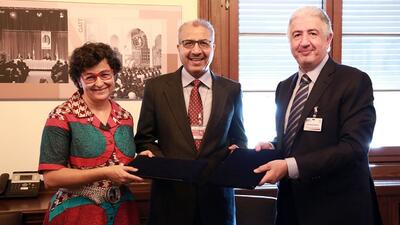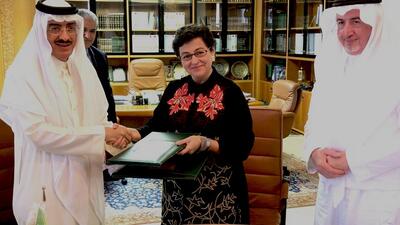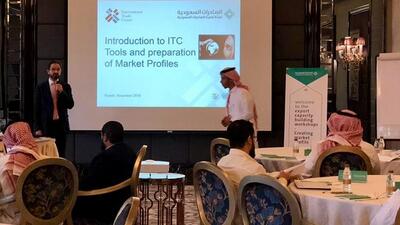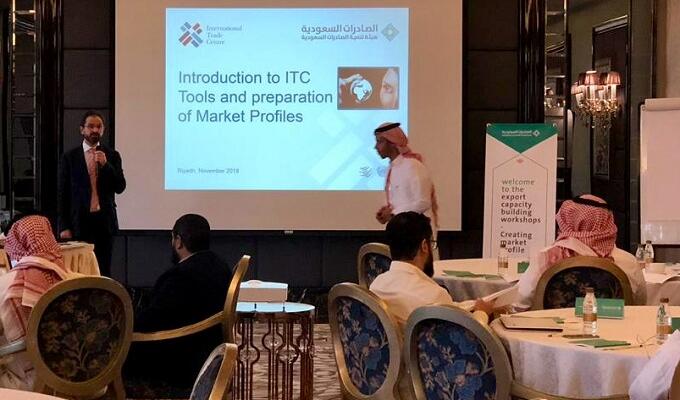

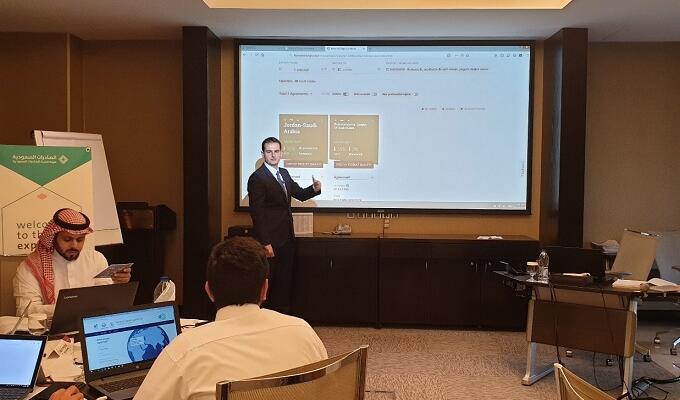
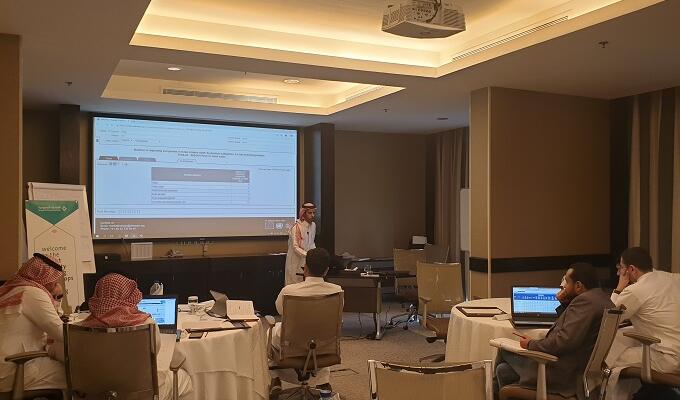
Saudi exporters use ITC tools to take aim at international markets
Exporters in Saudi Arabia last month enhanced their ability to identify international market opportunities in new products, sectors and markets using online analytical tools developed by the International Trade Centre (ITC).
Representatives from companies in sectors such as food, chemicals, construction materials and packaging took part in the International Market Profile Training workshops held in Riyadh and between 11 and 22 November.
The capacity building program was the result of cooperation between ITC, the International Islamic Trade Finance Corporation (ITFC) and the Saudi Export Development Authority (Saudi Exports) within the framework of the Aid for Trade Initiative for Arab States (AfTIAS) Program, a multi-donor, multi-agency initiative.
Exporting to a new market, or exporting a new product, is not straightforward for businesses: it involves doing market research, understanding demand trends, and eventually making informed decisions about product design, pricing and promotion. The workshop was designed to train participants to do just this, using ITC Market Analysis Tools to look at international market trends and requirements for products related to their businesses. They ultimately developed and presented market profiles combining trade data and business indicators to bolster their respective firms’ efforts to access foreign markets.
ITC Market Analysis Tools, which are free for users in all developing countries, include Trade Map, which provides indicators on export performance, international demand, alternative markets and companies’ contacts. Another tool is Market Access Map, which contains information on applied customs tariffs, trade remedies, and non-tariff measures. Sustainability Map offers exporters an overview of voluntary standards and global value chains.
The training workshop was led by two experts from ITC’s trade and market Intelligence team, Christophe Durand and Dzmitry Kniahin. They introduced two new ITC tools during the program, namely Market Price Information, which tracks daily export prices, and the Rules of Origin Facilitator, which allows businesses to spot tariff benefits under trade agreements and understand how to qualify for applicable origin criteria and certification requirements.
‘The Market Analysis Tools added to my knowledge on how to find export markets’, said Jehan Alshaeikh, an export officer with a chemicals and fertilizer company, who was one of the 34 participants in the programme. Talha Mashayekh, factory manager at a business that makes radiators and spare parts, praised the training for changing his perception of international business opportunities. ‘I am updating my international marketing plan to focus on customers in the most suitable market based on the proper market analysis I have conducted here’, said Ahmed Alyawar, export manager at a distributor and exporter of Saudi date products).
To ensure that Saudi businesses and policymakers can continue to have ready access to training in ITC Market Analysis Tools, Abdulrahman Alotaibi, a Saudi trade advisor, was selected to become a certified trainer to work with enterprises in researching and analyzing export markets. Mr. Alotaibi, who was a petroleum engineer before switching careers to work on helping Saudi non-oil exporters go global, met the qualification criteria and successfully passed the assessment by the two ITC experts. With his accreditation as the first ITC-certified trainer in the Gulf Cooperation Council (GCC) region, he can now execute on his passion by equipping Saudi businesses to use ITC tools to break into new markets around the world.




